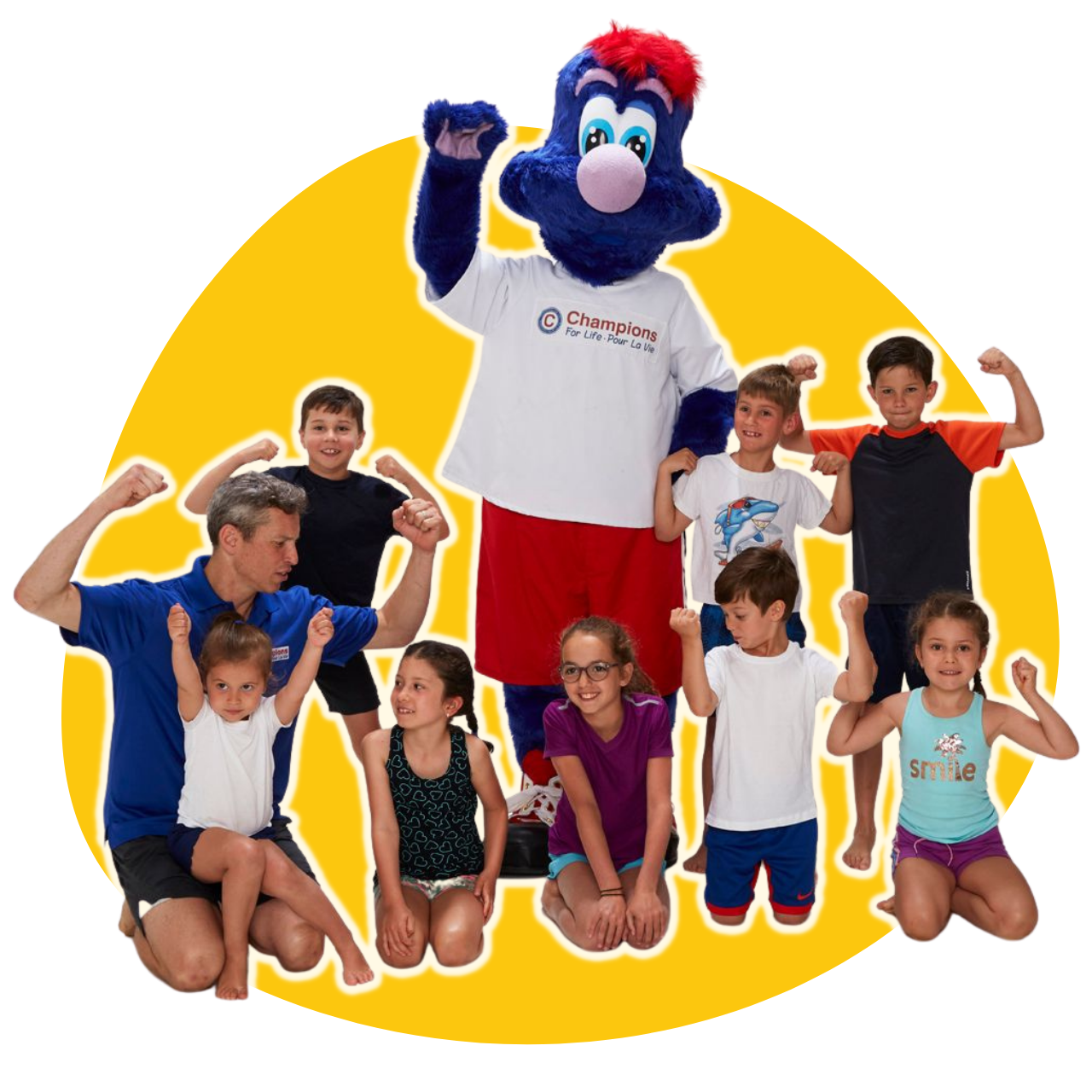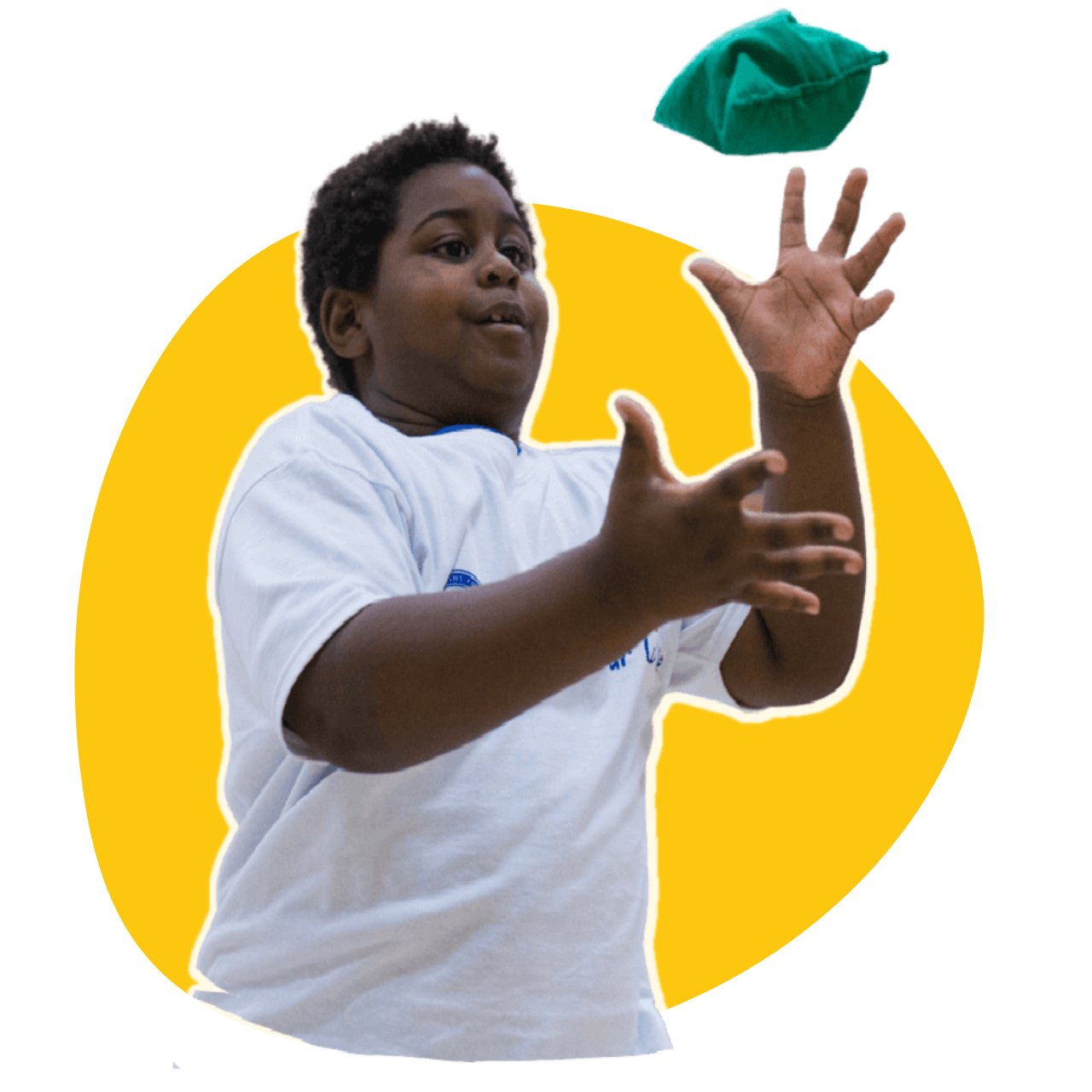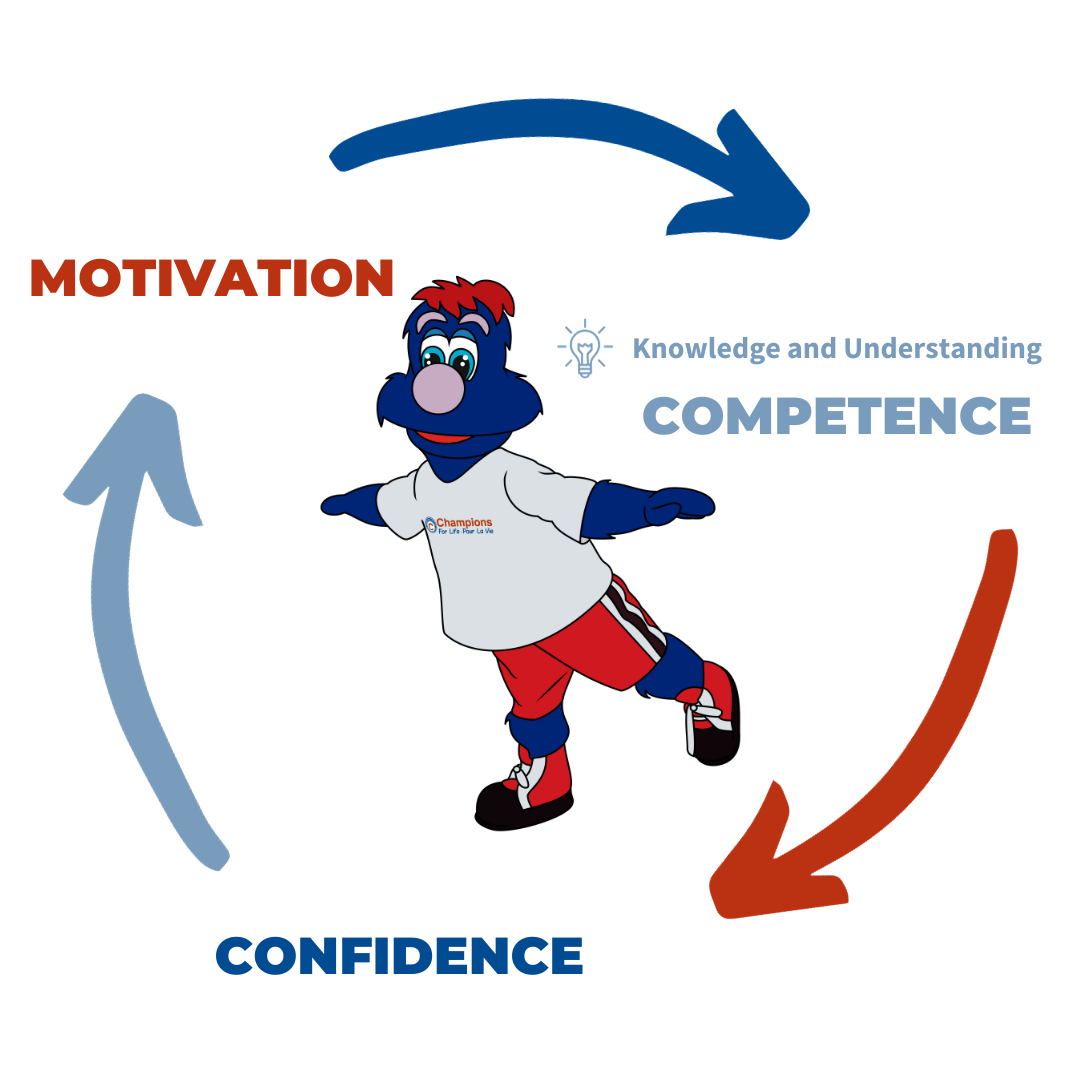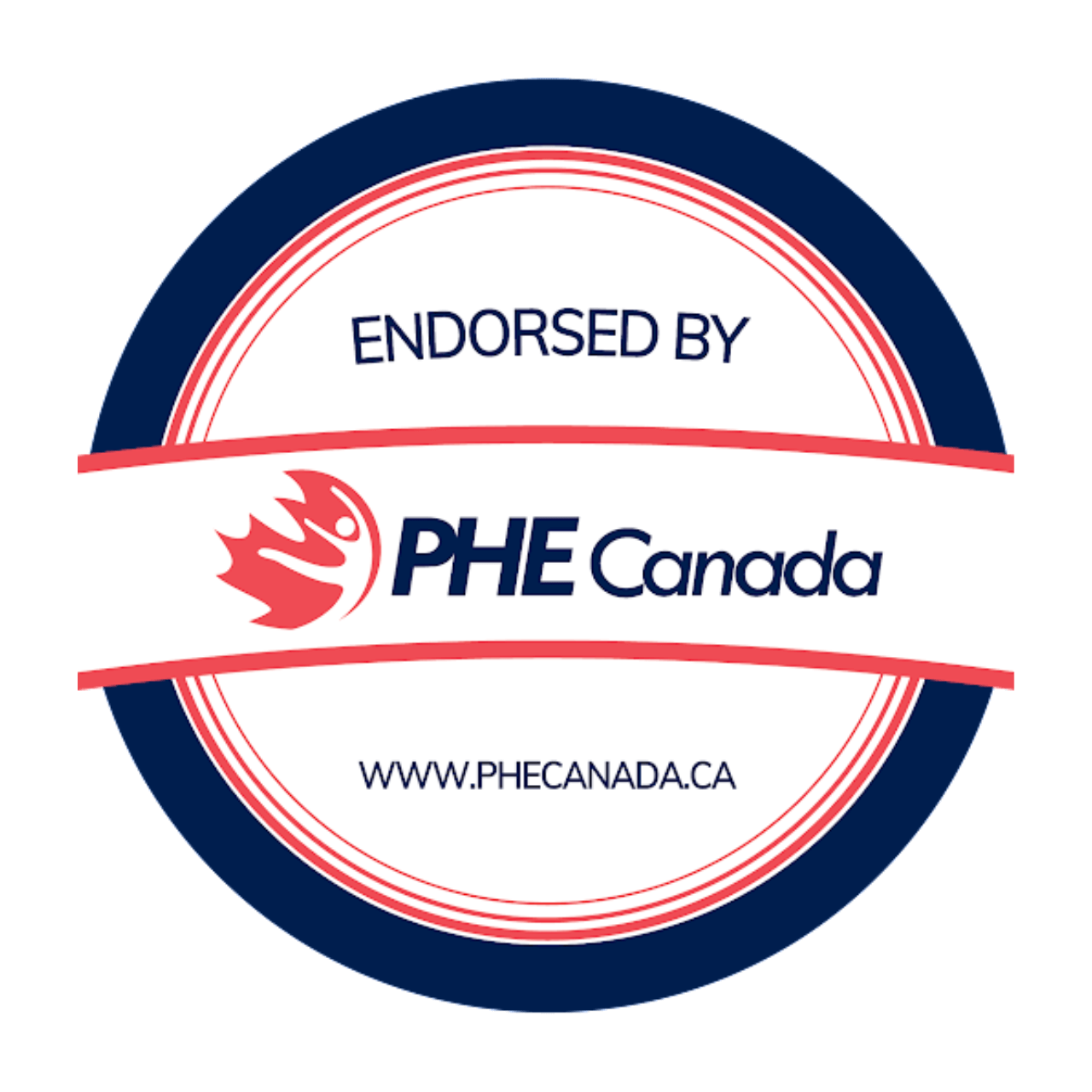A Dynamic Program That Gets Kids Moving More
Our Champions in Motion Program empowers children in grades K-2 to further develop their physical literacy through fun games and dynamic activities.
✔ Develop Students' Fundamental Movement Skills, Confidence and Motivation
✔ Encourage Lifelong Active Habits
✔ Bring Meaningful Movement Experiences into Your School With our Turnkey Session Plans

Our After-School Physical Literacy Program has been reviewed and endorsed by PHE Canada for schools across Canada.

Every Child Needs to Learn Their ABCs & 123s
Similarly, every child must know how to be physically literate to thrive and grow to be healthy.
Our Champions in Motion Physical Literacy Program empowers children ages 4-8 to acquire fundamental movement skills - to build their competence, confidence, knowledge and motivation to run, skip, jump, balance, kick and throw.
This engaging 20-session program can be offered to children before school, during lunchtime, or after school as part of the extended care program.
Learning to move and moving to learn!
Our Champions in Motion Physical Literacy Program Has Many Benefits
Motor Skill Development
Children are rapidly developing their gross and fine motor skills at this age. Engaging in various physical activities helps them build a strong foundation for coordination, balance, agility, and strength.
Strengthen Social Skills
Participating in group activities and sports helps children develop essential social skills like teamwork, communication, and empathy. It also provides opportunities to make new friends and build lasting relationships.
Improved Emotional Wellbeing
Physical activity reduces stress, anxiety, and depression. It helps children build self-esteem, resilience, and a sense of accomplishment.
Cognitive Development
Physical activities have been shown to enhance cognitive function in children, including memory, concentration, and problem-solving skills. Engaging in regular physical activity has also been shown to improve academic performance.
Build Healthy Habits
Developing physical literacy at a young age encourages children to maintain an active lifestyle. This can help them maintain a healthy weight, reduce the risk of chronic diseases, and improve overall health.
Improved Confidence and Motivation
Participants in our program enhance their confidence and motivation to be more active by developing a positive image of their abilities and the fundamental movement skills they develop through regular practice.
233,478
Children We've Empowered to Move Well
The Champions for Life physical literacy program positively influenced children's skill acquisition. Implementing the Champions for Life physical literacy programming improves children's physical movement capacity.
Richard DeMont
PhD, CAT(C), ATC
Concordia University
Despite today's trends where children are becoming less active and not as physically literate as previous generations, I firmly believe that kids are designed to be physically active. These resources have helped me unlock their hidden potential!
Lloyd Manganas
As an instructor and a physical education teacher, I noticed a great improvement in the children participating in the Champions for Life activities.
Misty Symes
Get Ready to Play, Learn & Thrive!
Our Champions in Motion Physical Literacy Program includes physical activities that are progressive, with a curriculum that ensures every child builds the competence, confidence, knowledge and motivation they need to be active for life!
Through demonstrations, practice, games and challenge stations, a trained
Champions for Life
leader will guide the children with engaging physical activities that strengthen their fundamental movement skills.
Children participate in a series of 30-45 minute physical literacy activity sessions.
Children receive KAIZEN Skill Cards to collect and take home after each class.
Children keep track of their progress with a Movement Map.
Children celebrate their accomplishment with a Certificate at the end of the program.
Frequently Asked Questions (FAQs)

Become a Champions for Life school.
We are accepting requests to register for our program for the 2025-26 school year.





